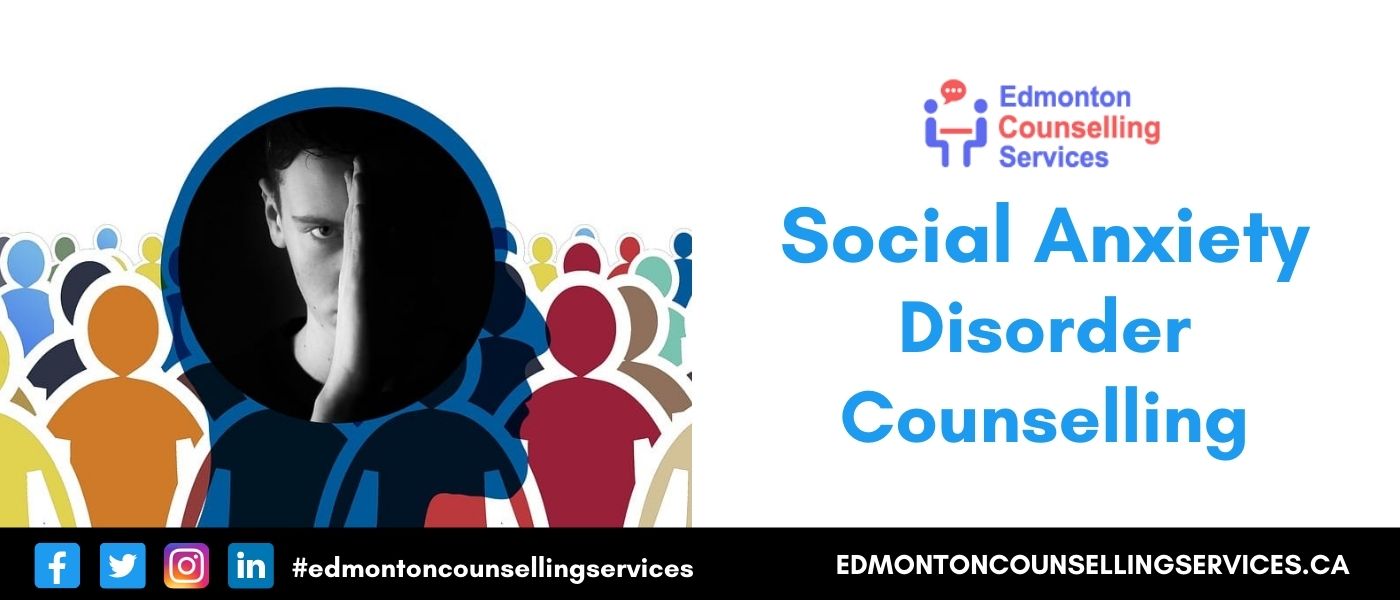Evidence-based counselling for anxiety with compassionate guidance
Checking Out Various Methods in Counselling for Anxiousness Disorder for Enduring Adjustment
When tackling anxiety conditions, it's important to discover a variety of counseling techniques. Each method uses one-of-a-kind insights and tools to help you manage your signs properly. You might discover that combining methods can generate the most effective results. Nevertheless, comprehending the nuances of these strategies is vital to fostering enduring modification. What happens if the appropriate combination could release a brand-new level of emotional well-being for you?
Understanding Anxiety Disorders: A Short Introduction
Anxiousness problems, which impact countless people worldwide, can greatly influence life. You might experience frustrating feelings of worry or fret that seem unmanageable. These sensations can result in physical symptoms like a racing heart, sweating, and even wooziness. Usual kinds of anxiousness conditions include generalized stress and anxiety condition, panic attack, and social stress and anxiety problem. Each has one-of-a-kind signs, however they all share a propensity to disrupt your routine and relationships.Understanding the source of your anxiety is vital. It could come from genes, brain chemistry, or life experiences. Identifying your triggers can assist you manage your feedbacks better. It is essential to keep in mind that you're not the only one in this struggle. Lots of people encounter similar challenges, and looking for help is a solid step toward feeling much better. By finding out about anxiousness conditions, you're already on the course to understanding and managing your condition much more efficiently.
Cognitive-Behavioral Treatment: Challenging Adverse Thought Patterns
Determining Negative Idea Triggers
When you experience moments of distress, identifying the certain triggers behind your negative ideas can be crucial in handling anxiety. Start by taking note of circumstances that provoke feelings of fear or worry. Is it a congested room, a forthcoming due date, or a discussion with certain people? Take down these circumstances in a journal. This will assist you recognize patterns in your thinking. Notice physical sensations that accompany your adverse thoughts, like a racing heart or tightness in your breast. By determining these triggers, you gain insight into what's fueling your anxiousness. Understanding these connections is the very first step in challenging those thoughts and inevitably regaining control over your emotional reactions.

Replacing Ideas With Positives
Challenging adverse thought patterns is a necessary action in transforming your attitude and decreasing stress and anxiety. You might often find yourself caught in cycles of insecurity or devastating thinking. Rather than allowing these ideas determine your sensations, practice replacing them with positive affirmations or sensible options. When you believe, "I can't handle this," move it to, "I can handle difficulties one action at a time." This simple adjustment can greatly affect your mood. Regularly identifying and responding to these adverse ideas aids develop a much healthier interior dialogue. Bear in mind, it takes time and effort, yet continually exercising this strategy can bring about long-term adjustment, equipping you to deal with stress and anxiety with renewed confidence and resilience
Structure Coping Methods Together
Replacing adverse ideas is only the beginning of taking care of anxiousness successfully. To produce long lasting change, you require to develop coping techniques that empower you. Cognitive-Behavioral Therapy (CBT) aids you determine and challenge those purposeless thought patterns. With each other, you and your therapist can discover just how these ideas effect your feelings and behaviors.Start by developing practical methods, like journaling or mindfulness exercises, that permit you to face anxiety head-on. When you face your fears progressively, you'll learn to react in a different way.

Mindfulness and Acceptance-Based Approaches: Cultivating Present-Moment Recognition
As you browse the intricacies of anxiousness, including mindfulness and acceptance-based techniques can substantially improve your ability to cultivate present-moment recognition. By concentrating on the present moment, you'll locate that you can observe your thoughts and feelings without judgment. This technique assists you recognize your stress and anxiety without feeling bewildered by it.Engaging in mindfulness exercises, such as deep breathing, body scans, or led meditations, allows you to ground on your own in your present experience. Acceptance-based techniques encourage you to accept your feelings as opposed to deal with against them. They shed their power over you.Incorporating these methods into your everyday routine can change how you react to stress and anxiety when you accept your feelings. You'll create durability and learn to browse difficult situations with higher ease. Eventually, growing present-moment understanding lays the foundation for long-term modification, encouraging you to lead a more meeting life.
Exposure Therapy: Challenging Worries Progressively
Exposure therapy assists you confront your worries in a gradual way, making it less frustrating. You'll find out techniques to deal with anxiety-provoking circumstances step by step, while likewise constructing coping techniques to manage your reactions. This strategy empowers you to take control and decrease stress and anxiety with time.
Gradual Exposure Strategies
When facing stress and anxiety, progressively challenging your fears can be a powerful method to regain control. This technique, called steady direct exposure, entails gradually exposing yourself to the scenarios or things that cause your stress and anxiety. Beginning with much less daunting scenarios and gradually work your way up to even more tough ones. If you're scared of public speaking, you may start by talking in front of a mirror, then progress to sharing ideas with a close friend, and at some point resolve a tiny group. Each step helps desensitize you to the worry, building your self-confidence over time. Bear in mind, it's necessary to speed yourself and celebrate tiny triumphes as you move through this procedure, enhancing your capability to manage anxiety properly.
Structure Coping Techniques
Structure reliable coping methods is vital for managing anxiousness, specifically as you challenge your anxieties slowly. One powerful approach is exposure treatment, where you start by facing your concerns in a regulated manner. Start with less intimidating situations and gradually function your method up to even more difficult circumstances. This progressive exposure assists desensitize you to stress and anxiety causes, making them much less overwhelming.Incorporate relaxation strategies, such as deep breathing or mindfulness, to calm your mind throughout exposure. Track your progression, celebrating little victories along the road to increase your self-confidence. Keep in mind, it's all right to take your time; the goal isn't excellence but constant improvement. By developing these strategies, you'll equip on your own to navigate anxiousness and embrace life a lot more totally.
Psychodynamic Therapy: Discovering Origin Causes of Anxiousness
Psychodynamic therapy checks out the subconscious mind, disclosing the root causes of your anxiety - Counseling services for anxiety. By analyzing your thoughts, feelings, and past experiences, this technique aids you reveal underlying conflicts and unsettled problems that might add to your current stress and anxiety. You'll deal with a therapist to examine youth experiences, partnerships, and psychological patterns that form your responses today.As you acquire insight right into these much deeper layers of your subconscious, you'll start to recognize just how past events influence your present behavior. This understanding can lead to catharsis, enabling you to process feelings you might have suppressed.Through the healing relationship, you can also identify defense reaction that may have developed over time, providing a clearer path to change. Eventually, psychodynamic therapy equips you with the tools to address your anxiety at its core, advertising lasting change in your emotional well-being
Integrative and Holistic Approaches: Combining Techniques for Greater Efficacy
Incorporating numerous restorative methods can improve your journey toward taking care of anxiousness a lot more successfully. By integrating elements from cognitive-behavioral treatment, mindfulness practices, and holistic strategies, you can produce a tailored approach that addresses your special demands. For example, you might utilize cognitive-behavioral methods to challenge negative idea patterns while incorporating mindfulness workouts to ground yourself in the present moment.Additionally, exploring alternative methods such as yoga or meditation can advertise relaxation and decrease anxiousness signs. This mix permits you to establish higher self-awareness and resilience.Experimenting with these varied methods can aid you find what resonates most with you. Remember, it has to do with discovering a harmony that functions, instead of adhering to a solitary approach. This integrative technique not only offers prompt alleviation but also fosters lasting abilities for taking care of stress and anxiety, encouraging you to recover control over your life.
The Duty of Support Systems: Structure Strength With Link
While it could appear that managing anxiety is a solitary journey, having a solid support group can play a vital role in your resilience. Bordering yourself with compassionate friends, household, or support teams produces a secure room where you can honestly share your experiences and feelings. You advise yourself that you're not alone in this struggle.These relationships provide encouragement and can supply sensible coping techniques that have actually worked for others when you connect with others. It's likewise a chance to gain point of view; good friends can assist you see situations differently, decreasing sensations of isolation.Moreover, psychological support cultivates a sense of belonging, which can greatly alleviate anxiousness signs. By leaning on your assistance system, you can build durability and tackle difficulties a lot more Licensed therapist for anxiety efficiently. Bear in mind, connecting for help suggests stamina, and it can make all the difference in your trip towards managing stress and anxiety.
Frequently Asked Inquiries
What Are the Typical Symptoms of Anxiousness Disorders?
You may experience uneasyness, tiredness, trouble focusing, irritation, muscle stress, and rest disruptions. Physical symptoms can consist of fast heart beat, sweating, and shivering. Identifying these indications early can assist you look for suitable support and therapy.

Exactly How Long Does Therapy Commonly Last for Anxiousness Conditions?
Treatment for anxiousness disorders generally lasts anywhere from a couple of weeks to numerous months. It truly depends upon your private demands, development, and the methods your therapist uses to help you handle your stress and anxiety efficiently.
Can Medication Be Made Use Of Along With Therapy for Anxiety?
Yes, drug can certainly be utilized together with therapy for anxiety. Incorporating both techniques commonly improves therapy effectiveness, helping you manage signs while checking out underlying problems through therapy. Always consult your doctor for individualized suggestions.
Exist Self-Help Strategies for Managing Stress And Anxiety?
Yes, there are a number of self-help approaches for taking care of anxiety. You can practice mindfulness, take part in normal workout, preserve a balanced diet plan, establish a regular, and make use of deep breathing strategies to help in reducing stress and anxiety symptoms efficiently.
Just how Do I Know if I Required Specialist Aid for Anxiety?
You need to take into consideration seeking specialist aid for stress and anxiety if it disrupts life, causes significant distress, or if self-help techniques aren't working. Trust fund your instincts; getting to out can bring about far better coping skills and support. Usual kinds of anxiousness problems consist of generalised stress and anxiety condition, panic condition, and social anxiety condition. When you encounter moments of distress, acknowledging the details triggers behind your negative ideas can be vital in managing stress and anxiety. Replacing unfavorable thoughts is only the beginning of handling stress and anxiety properly. By examining your ideas, feelings, and past experiences, this method helps you uncover underlying disputes and unresolved issues that may add to your current anxiousness. It's also a possibility to obtain perspective; friends can aid you see scenarios differently, decreasing feelings of isolation (Counseling services for anxiety).Moreover, psychological support cultivates a feeling of belonging, which can greatly reduce anxiousness signs